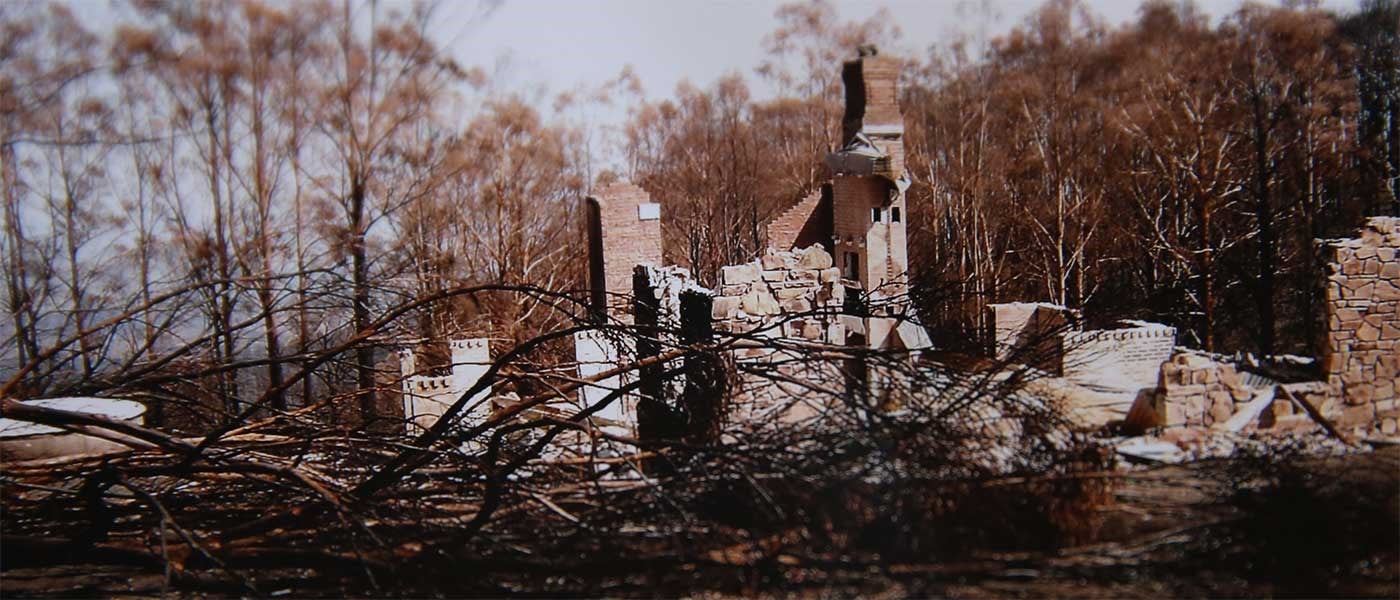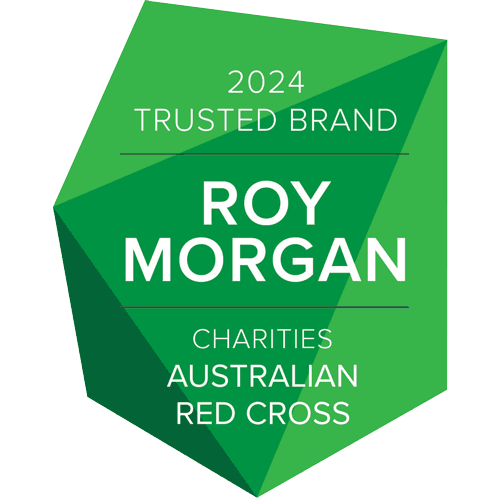Recovery takes time
Living through the Black Saturday bushfires at Kinglake in 2009 taught Anne Leadbeater what it takes to recover from a disaster. Now she offers some timely advice.

By Anne Leadbeater
"A couple of years – three at the most", I remember telling myself.
It was early February, 2009 and I was trying to make sense of the terrible impacts of the Black Saturday fires on my community of Kinglake. It’ll be hard, for sure, but a couple of years will see us right and we’ll be back on track’.
But we weren’t.
Was I naïve or just overly optimistic? On reflection now, I’d say probably a bit of both. The days swirled by in an ashy blur; the grief and loss etched on every face, the heartbreaking stories and struggle, countless community meetings, hugs and tears on the footpath, the damage to our beautiful landscape, the trucks full of debris that meant so much more than burnt iron and bricks.
Plans, proposals, grants, donations, poems read and songs sung at memorials and funerals, words of encouragement, kind-hearted enquiries, offers of help and hope. Empathy and compassion embodied in the kindness of strangers, and that of family and friends.
And suddenly it was the second anniversary. I stood in the white marquee trying to decide what colour I would paint my hand for the mural of hand prints being created for this milestone. Making decisions in recovery is hard. Black seemed fitting? Green? More hopeful.
As I pressed my hand to the canvas I was struck by how recent it all seemed. How was it possible two years had passed? I looked at all the hand shapes – big and little - and thought about who and what we had lost. And I read the messages of sorrow and support written by our community. Time heals all wounds they say, but not just yet, or so it seemed. We had come a long way but there was still so much sadness, and so much still to do.
It was early February, 2009 and I was trying to make sense of the terrible impacts of the Black Saturday fires on my community of Kinglake. It’ll be hard, for sure, but a couple of years will see us right and we’ll be back on track’.
But we weren’t.
Was I naïve or just overly optimistic? On reflection now, I’d say probably a bit of both. The days swirled by in an ashy blur; the grief and loss etched on every face, the heartbreaking stories and struggle, countless community meetings, hugs and tears on the footpath, the damage to our beautiful landscape, the trucks full of debris that meant so much more than burnt iron and bricks.
Plans, proposals, grants, donations, poems read and songs sung at memorials and funerals, words of encouragement, kind-hearted enquiries, offers of help and hope. Empathy and compassion embodied in the kindness of strangers, and that of family and friends.
And suddenly it was the second anniversary. I stood in the white marquee trying to decide what colour I would paint my hand for the mural of hand prints being created for this milestone. Making decisions in recovery is hard. Black seemed fitting? Green? More hopeful.
As I pressed my hand to the canvas I was struck by how recent it all seemed. How was it possible two years had passed? I looked at all the hand shapes – big and little - and thought about who and what we had lost. And I read the messages of sorrow and support written by our community. Time heals all wounds they say, but not just yet, or so it seemed. We had come a long way but there was still so much sadness, and so much still to do.
Time heals all wounds they say, but not just yet, or so it seemed. We had come a long way but there was still so much sadness, and so much still to do.
Now, with more than a decade of hindsight, that second anniversary feels like very early days. There had been a lot of progress in recovery, certainly, but we couldn’t know yet, what lie ahead. The overwhelming impact of disaster means that it touches every aspect of your life. It takes time, sometimes a long time, for communities to re-group, for people to grieve and take stock, and to try to make sense of what has happened and what the future might hold.
In our community there were families who struggled along in temporary accommodation for a couple of years, who then moved away because they couldn’t afford to rebuild. Others who rebuilt their homes and then put them up for sale because they couldn’t do another fire season. Some people, including little kids, developed anxiety or depression or were diagnosed with post-traumatic stress disorder (PTSD).
The effects of long term stress resulted in acute and chronic health issues. Tragically, we lost some people in our community to suicide. Businesses experienced economic impacts that resulted in closures and loss of jobs.
The University of Melbourne’s Beyond Bushfires project, a 6-year study involving over 1000 participants has examined the impacts of the 2009 Victorian Bushfires on individuals and communities over time. Its findings identify up to twice the average level of mental health problems in recovering communities three to four years after the fires, and a recommendation for development of five-year recovery plans.
It’s a much more realistic timeframe. The research also recognises the importance of social ties and community connections as protective factors for people recovering from disaster.
It’s impossible not to be moved by the experiences of so many communities impacted by the recent bushfires. Lives, homes and property lost. Businesses destroyed. Pets, livestock and native animals perished, and untold damage to the natural environment. In my work with recovering communities, my heart breaks for everyone. Not only because of the impacts they have experienced but because of the long, long road that lies ahead.
Help and support is urgently needed in the aftermath of a bushfire and immediate needs must be met. But we mustn’t let our own distress dictate the pace of recovery. People need our help now, and they will need help and support long into the future if they are going to be able to live a life they value once again.
There are issues and challenges that need immediate attention, and many that are yet to emerge. We must stay the course and support people to recover at a pace that is right for them – now and in the years to come.
Anne Leadbeater OAM is an independent consultant on disaster recovery and a volunteer member of the Australian Red Cross Bushfires Advisory Panel. Anne is a resident of Kinglake and lived through the 2009 Black Saturday fires, coordinating recovery efforts for Kinglake Ranges communities.
This article first appeared in the Herald Sun on Monday 27 January 2020.
In our community there were families who struggled along in temporary accommodation for a couple of years, who then moved away because they couldn’t afford to rebuild. Others who rebuilt their homes and then put them up for sale because they couldn’t do another fire season. Some people, including little kids, developed anxiety or depression or were diagnosed with post-traumatic stress disorder (PTSD).
The effects of long term stress resulted in acute and chronic health issues. Tragically, we lost some people in our community to suicide. Businesses experienced economic impacts that resulted in closures and loss of jobs.
The University of Melbourne’s Beyond Bushfires project, a 6-year study involving over 1000 participants has examined the impacts of the 2009 Victorian Bushfires on individuals and communities over time. Its findings identify up to twice the average level of mental health problems in recovering communities three to four years after the fires, and a recommendation for development of five-year recovery plans.
It’s a much more realistic timeframe. The research also recognises the importance of social ties and community connections as protective factors for people recovering from disaster.
It’s impossible not to be moved by the experiences of so many communities impacted by the recent bushfires. Lives, homes and property lost. Businesses destroyed. Pets, livestock and native animals perished, and untold damage to the natural environment. In my work with recovering communities, my heart breaks for everyone. Not only because of the impacts they have experienced but because of the long, long road that lies ahead.
Help and support is urgently needed in the aftermath of a bushfire and immediate needs must be met. But we mustn’t let our own distress dictate the pace of recovery. People need our help now, and they will need help and support long into the future if they are going to be able to live a life they value once again.
There are issues and challenges that need immediate attention, and many that are yet to emerge. We must stay the course and support people to recover at a pace that is right for them – now and in the years to come.
Anne Leadbeater OAM is an independent consultant on disaster recovery and a volunteer member of the Australian Red Cross Bushfires Advisory Panel. Anne is a resident of Kinglake and lived through the 2009 Black Saturday fires, coordinating recovery efforts for Kinglake Ranges communities.
This article first appeared in the Herald Sun on Monday 27 January 2020.
Charity donations of $2 or more to Australian Red Cross may be tax deductible in Australia. Site protected by Google Invisible reCAPTCHA. © Australian Red Cross 2025. ABN 50 169 561 394
